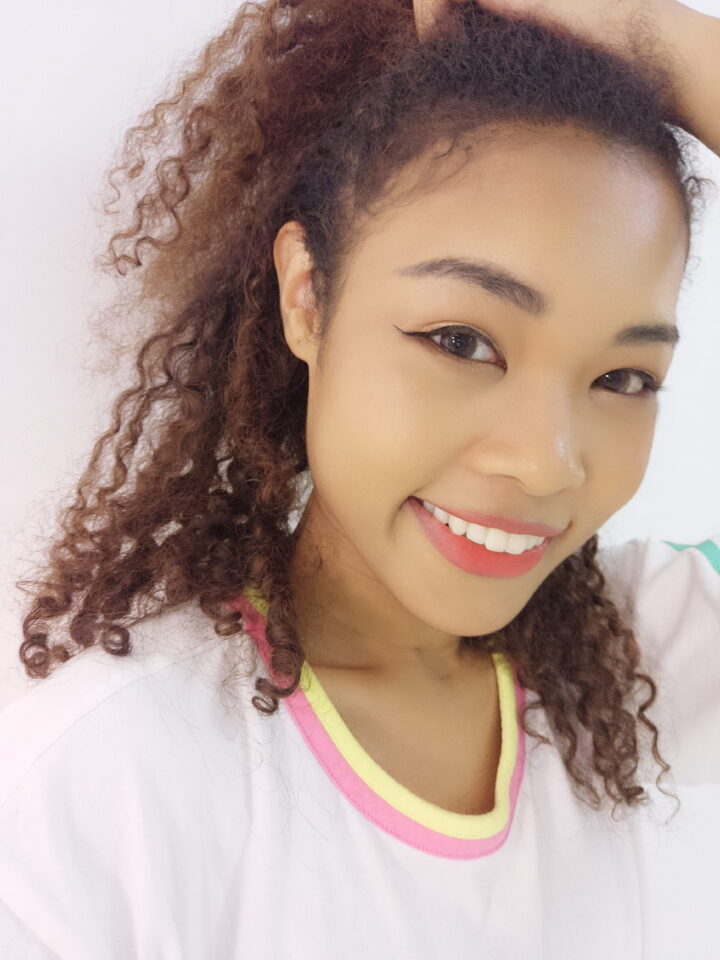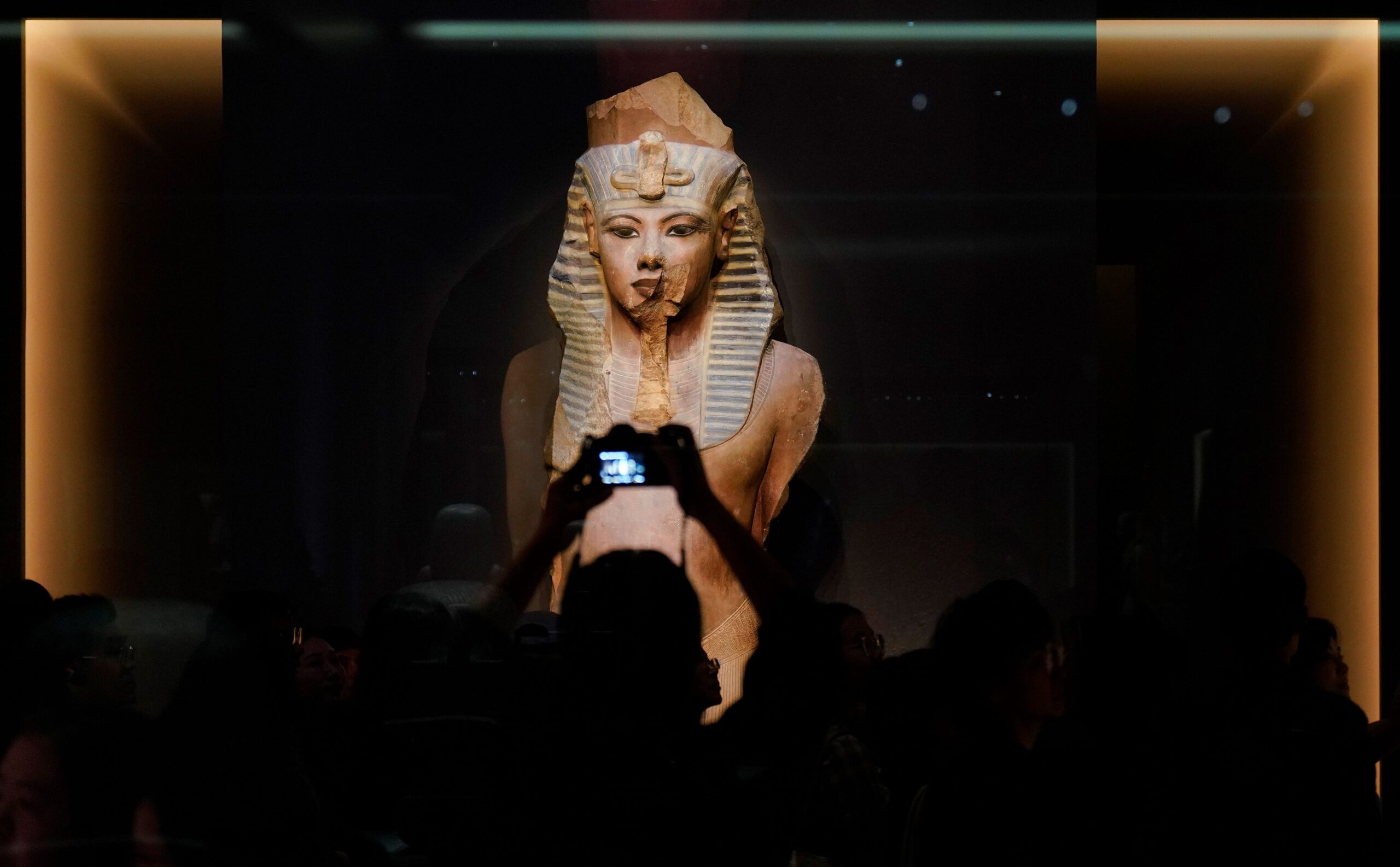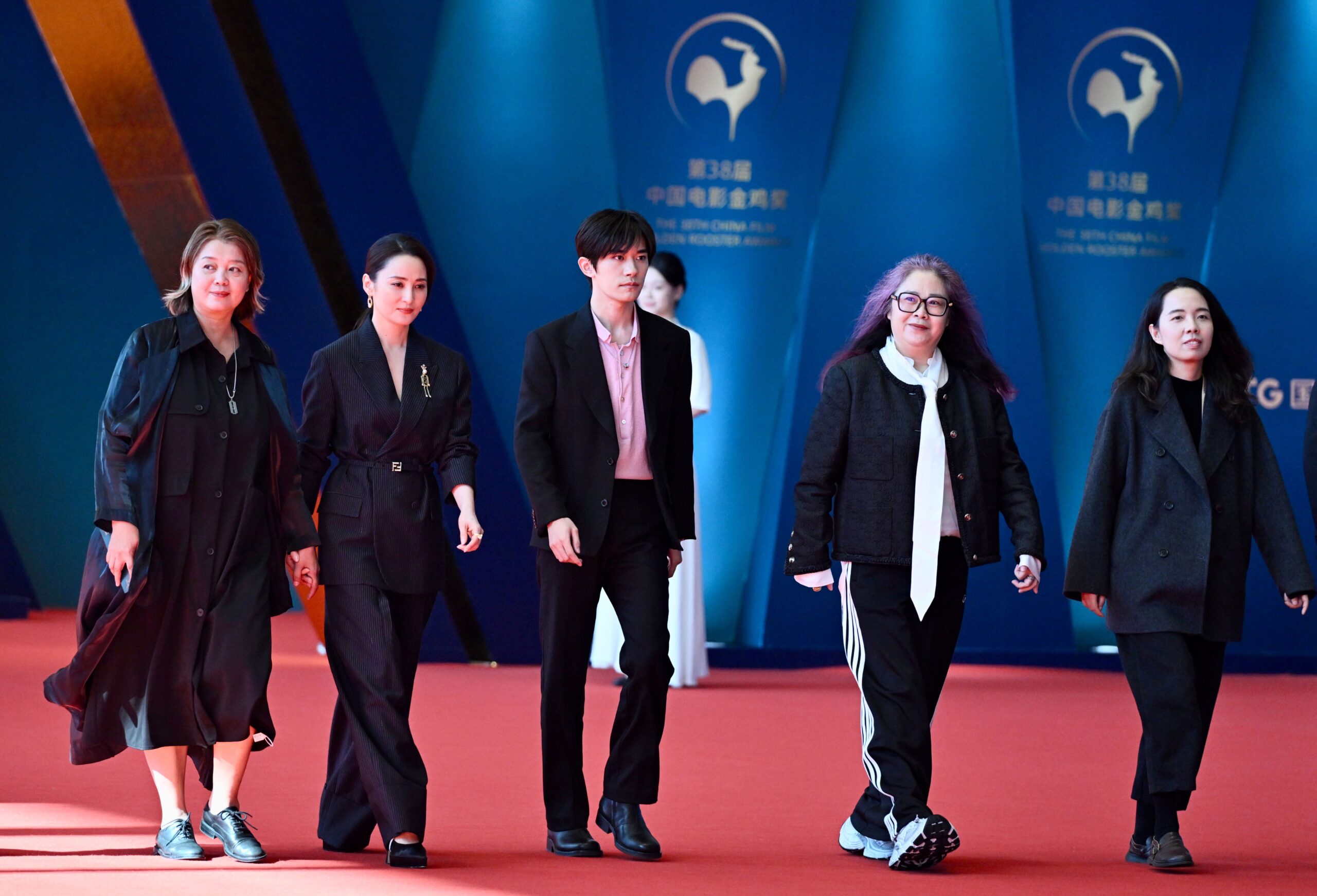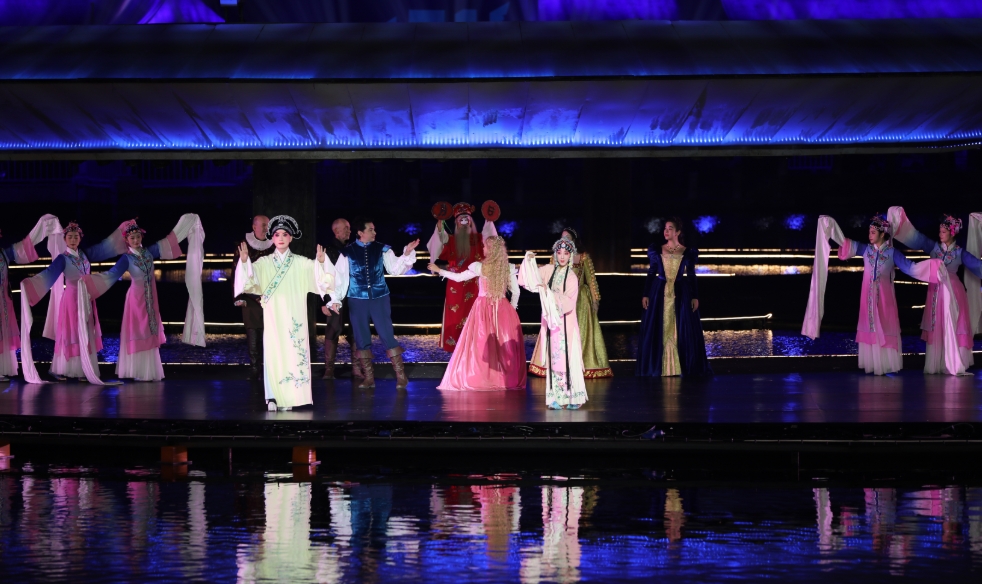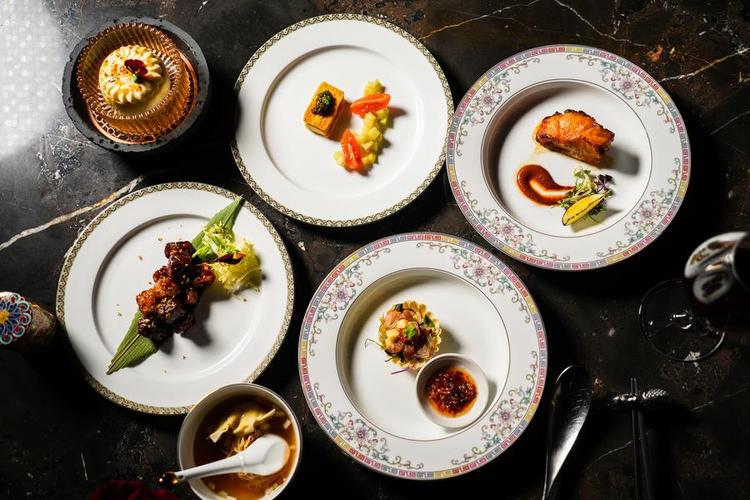Zhong Feifei brings her Congolese and Chinese roots to China through Produce Camp 2020.
“With my curly hair, how could I interpret a song celebrating antique China?” declared Zhong Feifei, while smiling with a hint of irony and mischief, as she prepared for her upcoming stage performance. She has a point. With a Chinese mother and a Congolese father, she is not what you imagine when you think of ancient China.
This 24-year-old Sino-Congolese is a part of the 101 trainees of the talent show Produce Camp 2020, available since May 2nd on China’s Internet giant Tencent. Inspired by K-pop, the reality show will form a 7-member girl band by the show’s end. However, through embracing her differences, she has taken China by storm.
Zhong Feifei grew up in the north-east of China before leaving to study in the US in 2014. When she was younger, she did all she could to straighten her hair, to be like others. But now, she owns up to her differences and feels comfortable – her hair even becomes part of her brand. Her confidence, her enthusiasm, and her humour attract hundreds of thousands of Chinese fans. Many see her as a different idol to embrace, far from China’s beauty standards – “white, innocent and thin” (白幼瘦). Others see her as a representation of black people in the C-pop industry.
However, this notoriety might quickly become a burden on her shoulders. She perpetually lives under the virtual magnifying lens and constantly endures netizens judgments. Including on her origins and skin colour.
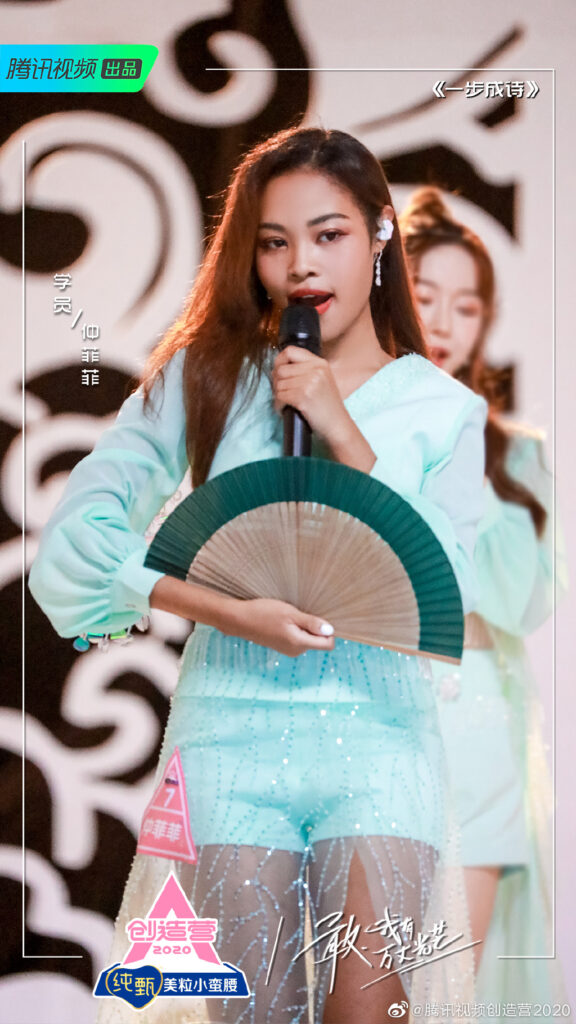
To grasp Zhong Feifei’s popularity, we need to turn back time in order to understand the C-pop industry. Since 2018, reality shows have become big business in China. Also known as survival shows, they are machines that create celebrities and idols for young people. Cai Xukun, the winner of Produce 2018, a show produced by the Chinese platform iQyi, has gone on to have a major career. Numerous young girls and boys have tried to follow in her footsteps.
Before stepping foot on the set of Produce Camp 2020, Zhong Feifei was building a brand as a beauty and fashion vlogger during her free time as a second-year master’s student. As someone who likes to share her makeup and style tips, taking part in Produce Camp 2020 is, without a doubt, a major event in her life. She wrote on her Weibo account, which now has been followed by over 380 000 people: “It’s an opportunity that will make me step out of my comfort zone”.
“When mixed people claim they also are “Yan and Huang descendants” (炎黄子孙 nominating the ethnocultural Chinese identity) or “dragon’s descendants” (龙的传人 describing Chinese people), I wonder if our ancestors won’t get mad in their graves!” commented a netizen under one of her post at the end of November 2019. Angered, the young woman replied immediately: “If you don’t know the answer, go get in their graves to ask them directly because I can’t answer questions destined to dead people”. A backbone that got her a surprising amount of support from Chinese netizens. They commented that she’s “A tough girl” and gave “a majestic answer”.
The exchange went mainly unnoticed at that time, but it made waves in early April when Produce Camp 2020 was releasing the trainee’s list little by little. On April 9th, the hashtag “ Zhong Feifei’s Weibo comment” wzs seen by over 20 million people. It trended in the top 10 of the platform’s most searched hashtags.
With anti-black xenophobic in China repetedly coming under a spotlight, posts about Zhong Feifei have a political or even geopolitical aspect.
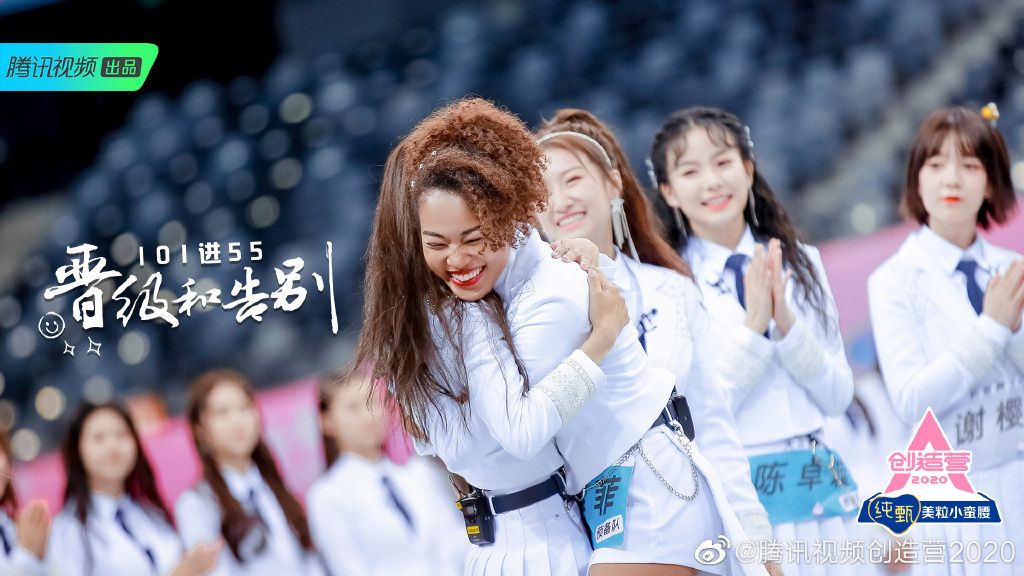
However, in the Chinese public opinion, before being mixed Zhong Feifei is “over qualified”. She specialised in anti-terrorism at the prestigious John Hopkins university. This forces respect and admiration in a country attributing a huge importance to scholar success. An article published on Tencent even made a list of the Produce Camp 2020 trainees who completed the most prestigious studies in China and abroad, nicknamed “studies queens”, (online saying describing hard-working students). Feifei of course made the list.
Zhong Feifei’s Weibo account’s Fanclub gathers those who actively rally to promote their idol and fight against racist remarks. Reached out for comment, the owner of the account did not want to talk further about the discussions around Feifei. They stated: “We follow Feifei since her debut as a vlogger and we were witnesses of the polemics caused by her participation in the show. We do not wish to highlight a part of her identity that is hers, risking creating even more discussions”.
If the Chinese fans are avoiding any discourse about her skin color, those living in the US seem more comfortable addressing the subject. Julia, an 18-year-old black high schooler and owner of the “for Zhong Feifei” twitter account, has been passionate about K-pop for a few years and took interest into Feifei when she faced racist remarks in China.
“I remember some Chinese people left racist and vulgar comments on Feifei. So, I told myself I had to protect her from those awful people. They said African people were ugly and had a low IQ, and even asked her to go back to Africa. It was sad to see that they refuse to recognize her as a Chinese. It’s time for this state of mind to change (…)But I also know that not all Chinese are like that, because in Weibo’s “Super Topics” we can find a lot of very nice Chinese fans that I really like”.
Followed by almost 7,000 people, another twitter account “Zhong Feifei info” is owned by three American teenagers aged from 15 to 19. K-pop consumers, they also watched the latest Chinese survival shows. Unlike Julian they would rather highlight Feifei’s talent to explain their attachment to this “studying queen”, without ignoring the dormant racism.
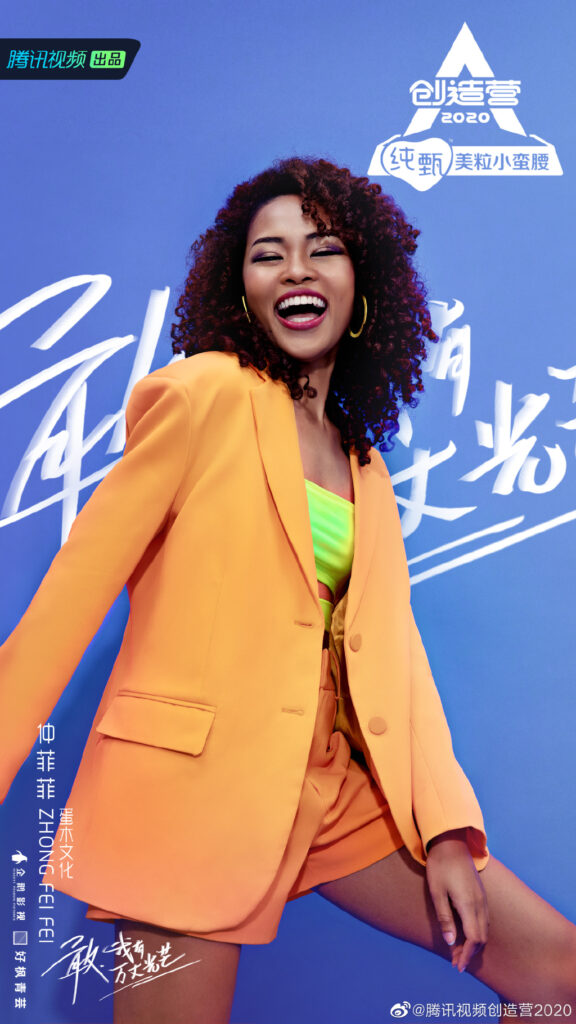
“We think that the POC representation in Asia is rare but could be impactful. The fact that she is taking part in this show is already a starting point for more representation of minorities in the Asian pop music industry”.
“The labels that got stuck on Feifei are like magnifying lenses through which we can, more than ever, observe the sensibility touching the skin color of a celebrity in different scenarios, which varies with the context. Tencent’s producer, Chinese media, Africans and occidentals don’t share the same vision on Zhong Feifei. There is no unique speech, but the comments aren’t necessarily contradictory, as each part express itself under the prism of its own point of view”, analyzes Liu Tingting, anthropologist and sociologist specialized on gender studies in Ji’nan university (Guangzhou) and a survival show consumer herself.
While some media in the west hilighted the awful racist comments towards Feifei to denounce African discrimination in China, Africa-based websites focused on the fact that a Sino-Congolese woman has made so many waves on Chinese social media.
In China, mainstream media not used to talk about racial issues stays quiet. However, bloggers readily discuss the hate speech found online. Like Lao Ge, owner of the video account “Cantonese’s talk show” (粤男有话说) on Bilibili, who delivered a deeply-thought reflection on Feifei’s case. To bring out sensitivity to his public, he made a parallel between the n word and a word used by Japanese people during WW2 to describe Chinese people and now considered as offensive. This method had quite an effect on netizens and brings to light a Confucian value: don’t do to other what you don’t want them to do to you.
On March 31st, Feifei, in a traditional-inspired dress and a fan in her hand, succeeded easily in her performance of the neo-traditional pop song “Poem” (一步成诗) and got picked for the next step of the show. But “the woman with dark skin and curly hair” as the viewers who don’t know of her call her, confided that the challenge was somewhere else: “I should have straightened my hair for this stage”.
Article originally written by Hu Wenyuan, translated by Elise. If you liked this article why not read: Chinese “Indie Girl” Yijia Tu Modernises Classical Music of the West and East

